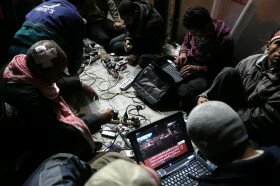
At SWN HQ we’ve been discussing creative ways Egypt might be able to ensure their upcoming elections are free and fair. At this point the love affair between the Egyptian people and the Web last spring is painstakingly documented. But the recent announcement that the military council will maintain the emergency law into next year, shows that they need to commit to a long term relationship. The rumored dates for the upcoming election are November 21st, which would mean this critical election would take place under the same atmosphere as they did under Mubarak.
Citizen media was crucial to kicking off Egypt’s revolution, and it will be essential for monitoring each step it takes. Election monitoring technology is available that can allow citizens to collect reports about problems via SMS, media will need to be more sophisticated, and information will need to be more clearly sourced.
Just as I hope the media campaigns step up in quality, it is likely that the reaction to citizens uploading video, posting tweets, and communicating over facebook will be more sophisticated too. Just as Libya has learned from Egypt, Egypt will learn from everything in the last year.
Written by: Steve Wyshywaniuk ~ Co-Founder
//photo credit: Patrick Baz/AFP/Getty Images
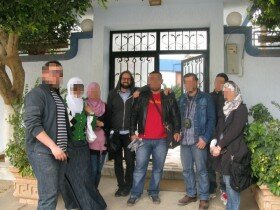

Alive in Libya Team
We’re very much in the news business but on a very small scale. We wanted to get away from deadlines and pressures that cause papers and news bulletins to churn out the same press releases across the day.
Some big stories we can’t avoid covering along with the local paper or radio station, but we always try to find a different angle. There’s little point covering the same stories that people can find elsewhere.
As we become more established, it becomes easier to set our own agenda. We aim to delve a little deeper into stories which matter to people locally which other news outlets might not be able to do in such detail.
At the same time, Knight Foundation unveiled the winners of their 2011 Knight News Challenge. While many of the prize recipients focused on the solving some of the complications with online mass media, a few of them were geared more toward smaller, more local journalism projects. This one in particular caught our eye:
Project: OpenBlock Rural
Winner: University of North Carolina, Chapel Hill, N.C.
Award: $275,000
Project lead: Ryan Thornburg
Website: jomc.unc.edu
Twitter: @rtburg
Rural news organizations often struggle to move into the digital age because they lack the staff to make public data digestible. OpenBlock Rural will work with local governments and community newspapers in North Carolina to collect, aggregate and publish government data, including crime and real estate reports, restaurant inspections and school ratings. In addition, the project aims to improve small local papers’ technical expertise and provide a new way to generate revenue.
Small World News is especially interested in localized content, as one of the issues we’ve consistently grappled with throughout our many projects is getting content not only out of the country, but also to distribute content within the country itself. We’re currently investing and exploring different options for offline digital distribution, such as bluetooth, USB drives, and CD/DVD’s.
Alive in Libya has been quite successful at bringing the stories of Libyans to the outside world, especially Westerners, but it is still not reaching its full potential when it comes to providing news for citizens living in Libya.
This morning I sat down with Seraj ElAlem, Alive in Libya’s Bureau Chief in Benghazi, to find out what he had to say about getting local content to the locals themselves.
First of all, why is it that more Libyans aren’t watching Alive in Libya right now?
We’ve been getting a lot of positive feedback from Libyans abroad as well as Libyans here who have managed to get online and watch some videos, or got their hands on our material one way or another. Mainly now most Libyans can’t watch because of the lack of internet access.
What kind of news are Libyans most interested in? Local stories or news from outside Libya?
I think there’s an audience for each. Libyans have been deprived of active local media for years, they don’t know how to feel when they see a report on Alive in Libya that’s discussing some issue they’re personally dealing with. TV has always been a Gaddafi glorifying instrument, not a way to report about Libyans’ day-to-day problems and issues.
Are there ways for the content to reach Libyans without internet access?
As for now we have printed 100 CDs [pre-loaded with Alive in Libya content] to distribute. The more efficient way to get our material to a Libyan audience is to get them on the new Libya TV channels that have been appearing on satellite. We’re currently in the process of discussing this matter with a few of these channels.
Are there any issues with these new TV outlets? Are they adequately serving the needs of Libyans?
The channels are very pro-revolution obviously, which sometimes diminishes their value as a news source. I personally do not trust the news I hear on them, they’re usually modified to be pro-revolution.
One of the things that the new Libyan channels are suffering from is a common problem among all Arab channels: they just love “analysts” – people who generally tell you how you should view something or how you should feel or react towards it. The people on the streets don’t get enough air time. And if they do, the interviewer’s questions are usually loaded and end up guiding the person towards a specific answer.
Given an unlimited budget, how would you shape Alive in Libya to better serve citizens inside Libya?
I would put Alive in Libya bureaus in all the major cities [There is only one bureau currently in Benghazi, with one planned in Misrata]. I’d start a TV channel where the time slots are divided among these offices. They’d broadcast what’s happening in their region, and their time slot would rotate so no one office gets prime time all the time.
Would you do anything with mobile phones or the internet? Or just bypass those for now until Libya has more access to the internet?
Sadly, Libya is a bit behind when it comes to telecommunication. So if I had unlimited funding, for the time being, I’d focus more on TV.
Of course the bureaus around Libya would still be producing for the Alive in Libya website. And the way mobile phones are changing now, soon you won’t have “internet & mobiles” you’ll just have internet.
I appreciate Seraj being able to take time away from his duties to speak with me. This is a conversation that I’ve had with folks at the Small World News headquarters many times before, and will continue to have into the future.
Figuring out how to make and adequately distribute content relevant to locals will continue to be one of the issues that concerns us, in Libya or any of the other host countries for Alive.In projects. Whether hyperlocal is an adequate model for this kind of journalism remains to be sorted out, but some solution must be devised in order to reach the local citizen themselves, beyond the foreign and western audience.
For more information on the Alive.In projects, visit Alive in Libya, or follow us on Facebook and Twitter.
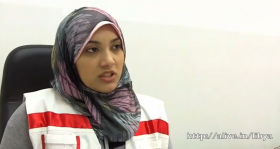
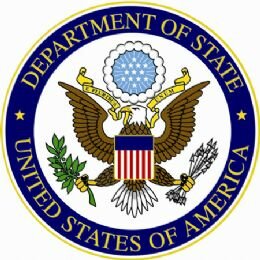 Previously we’ve written here about how citizen media – the stories of those on the ground – can be used to provide much-needed context for journalists, analysts, and policy makers. Knowing the specifics of what’s happening, and learning it from the locals themselves, ensures better intelligence and therefore better decision making.
Previously we’ve written here about how citizen media – the stories of those on the ground – can be used to provide much-needed context for journalists, analysts, and policy makers. Knowing the specifics of what’s happening, and learning it from the locals themselves, ensures better intelligence and therefore better decision making.
But what does citizen media offer the general public – consumers, voters, and interested parties? The short answer is Accountability.
In the relationship between ordinary citizens and policy-makers, the value of citizen media goes both ways. The same data provided to decision makers can be turned around and used by citizens to hold the authorities accountable.
To see this in action, let’s look at a recent editorial written by US Assistant Secretary of State for Near Eastern Affairs Jeffrey Feltman. In it, he tells a “tale of two cities” – pre-revolution Tripoli and post-revolution Benghazi – and offers what it is he thinks the US’ interests and priorities in Libya should be.
My visit to Tripoli in December was full of dark threats and ominous portents. The fear was palpable. One Libyan official told me that if you so much as dared to speak of Qadhafi’s paranoia and quirks you would be killed. Qadhafi’s thugs had taken to harassing our embassy personnel. It was a harbinger of worse things to come…
Last week in Benghazi, though, I saw what Libya could become — and it was clear as day why it is in the U.S. interest to see the Benghazi vision for Libya succeed over Qadhafi’s. The collective sense of joy and opportunity was unlike anything I have experienced in my diplomatic career…
He also makes a few claims that might be surprising – or questionable – to the average reader.
Everyone, from rights activists, to businessmen, to members of the Transitional National Council (TNC), projected a sense of exhilaration. Civil society organizations of every stripe seemed to pop up almost before my eyes. Citizens seemed astonished and delighted that they can at last speak their minds, and plan for a different Libya than the one they have endured for the past 40-plus years.
In the many years I have worked in the Middle East, I’ve never been to an Arab city so grateful to the United States. Libyans in Benghazi know how brutal their former ruler is. They are profoundly appreciative to have been spared what would have undoubtedly been a massacre of enormous proportions in mid-March, had NATO not intervened. Imagine walking in the main square of a teeming Arab city and having people wave the American flag, clamor for photographs with a visiting American official, and celebrate the United States as both savior and model.
So if you’re a US citizen reading this in Politico, how do you know if what Feltman is saying about Libya is true?
Simple. Ask a Libyan.
In this case, that means citizen media produced by Libyans – Alive in Libya.
Are there civil society organizations of every stripe popping up seemingly overnight? Yes.
The Libya Red Crescent has stepped up and is working to seek out missing persons, those “disappeared” by the Gaddafi regime. Benghazi police have, of their own volition, gone back to work to restore order and civility to the city. And the Youth for Change (YoC), a wholly new organization, has emerged to better connect the restive youth of Libya to the leaders of their government ministries.
Are Libyans planning for a new society, different from the tyranny and inequality they’ve previously experienced? Yes.
Volunteers have set up media assistance centers where journalists can access partners and resources to better tell their story – a far cry from the strictly controlled propaganda of the previous regime. Even the TNC, the rebel council only in existence for a few short months, is deliberate in its attempts to meet the egalitarian standards of a new, pluralist society.
And what about the most questionable piece, the scenes of Libyans waving American and other flags in the streets? Also true.
See for yourself:
Just as the policy-makers don’t need to blindly trust their bureaucracies, the general public doesn’t have to simply take the words of policy-makers at face value. Citizen media allows you to verify official statements, and to hold those officials accountable.
Citizen media is a powerful tool, not only for those producing it, but for everyone. Remember this the next time an editorial like Feltman’s comes along. You don’t have to trust it. Check it against the stories of those who aren’t official policy makers, those who live and work on the ground every day.
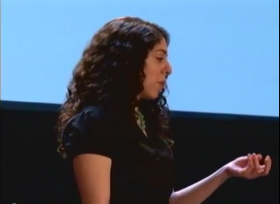
On April 8th, 2011 I had the opportunity to give a TEDx Talk as part of TEDxUofM at the historic Michigan Theater in front of a 1700 member audience. I was very lucky to be able to speak as a part of such an inspiring group of people, and that I had the chance to share my story.
Donia Jarrar is one of the many volunteer translators who worked with us during the early days of the Arab Spring. In this video she shares her personal story of how she came to Egypt, how she became involved in translating Speak2Tweet messages, and eventually, how she partnered with Small World News’ Alive in Egypt project.
Donia’s story is very important to us at Small World News, not only as a display of the motivation and dedication of our translation team, but because her experience exposes one of the many ways citizen journalists “self-select.” That is, how the daily lives and experiences of people all over the world lead them to telling stories, their own as well as their fellow citizens.
Why you choose to report is often just as important as what you choose to report. Donia’s personal history, from her family’s upheaval at the age of 4 to her life as an Arab student in the United States, culminated perfectly in a special drive to make the voices of Egypt’s revolution heard – across media and across borders.
Donia’s experience stands as a powerful example of the unique experiences – both extraordinary and ordinary – that lead one to creating and sharing citizen media with the world.
For more stories from the Egyptian revolution, visit Alive in Egypt
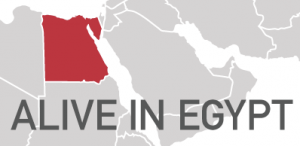
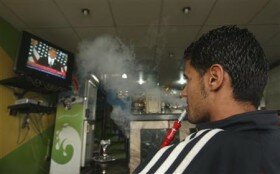

A Libyan watches a television broadcast of a speech by President Barack Obama in U.S., at a shop in Benghazi May 19, 2011. Credit: REUTERS/Mohammed Salem
From President Obama’s speech on the Middle East and North Africa, delivered this morning at the State Department:
We will continue to make good on the commitments that I made in Cairo ” to build networks of entrepreneurs, and expand exchanges in education; to foster cooperation in science and technology, and combat disease. Across the region, we intend to provide assistance to civil society, including those that may not be officially sanctioned, and who speak uncomfortable truths. And we will use the technology to connect with ” and listen to ” the voices of the people.
In fact, real reform will not come at the ballot box alone. Through our efforts we must support those basic rights to speak your mind and access information. We will support open access to the Internet, and the right of journalists to be heard ” whether it’s a big news organization or a blogger. In the 21st century, information is power; the truth cannot be hidden; and the legitimacy of governments will ultimately depend on active and informed citizens.
Small World News welcomes the US government’s commitment to the values of free speech and a free press. As we have witnessed through our work over the last five years, these values are more than abstract ideals; they are concrete goals sought universally by citizens around the world.
But these goals cannot be reached through words alone. As Small World News’ Brian Conley and Louis Abelman have written, supporting the aspiration of free expression is a lengthy and complex process:
Over 2010 we engaged in a broad expanse of projects: helping start a daily news program produced by Indian community activists; training Ethiopian journalists in exile to protect themselves online; supporting Rwandans with new media training; training Iraqi civil society organizations and technologists to develop a strategy and implement social media and mapping tools, teaching Afghan journalists to leverage the latest in mobile journalism tools; supporting an international monitoring organization and local humanitarian one to leverage mobile technology and mapping to monitor the Afghan parliamentary election; working with Bahraini human rights activists to develop tools to monitor their parliamentary election; and training Tibetan and Indian activists to leverage video as a tool to promote their work.
Today we hope to utilize the breadth of our work over the last five years to continue creating a space for voices go regularly unheard by the international community. This means centralizing the fragmented locations where dialogue is happening, and making sure those voices are curated and contextualized, as well as translated to English and other languages when necessary. It also means meeting with local contacts, providing training and equipment and infrastructure support as necessary. In a place like Afghanistan it may even involve coordinating with telecommunications companies as we’ve done previously, or developing methods that better prioritize the most accessible tools, such as voice and mobile platforms particularly in rural and low bandwidth communities.
While the value of free expression is universal, the solution is highly contextual. Each country presents unique challenges and opportunities for reaching our goals.
For instance, in Libya, citizens in eastern cities like Benghazi and Ajdabiya have considerable access to local media, through television and radio. But this media generally takes the form of revolutionary propaganda and opinion slanted in support of the rebellion. The opportunity existed for Alive in Libya to create a free and independent news source for Libyans as well as the international community.
This allowed Libyans access to news about their most pressing concerns not found in revolutionary media. For example, our teams of correspondents on the ground offer information on access to electricity in Ajdabiya…
…as well as information on organizations monitoring and seeking out persons who’ve gone missing in the conflict:
Small World News is excited to be a part of the global push for free expression, and we applaud the government’s stated goals of empowering journalists, bloggers, and civil society groups in support of that mission. We continue to build and train our networks of individuals and organizations, not only in Libya, but regionally and worldwide, so that these voices can be heard.
For more information on the Alive.In projects, visit Alive in Libya, or follow us on Facebook and Twitter.
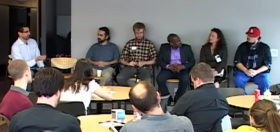
Last weekend, the Small World News team attended Digital Journalism Camp 2011 in downtown Portland.
Digital Journalism Camp is about spending the day with the people who are actively changing journalism. You’re going to learn from ” and share with ” the people who have found solutions to the challenges you face, whether you’re a beat reporter, a blogger or a publisher.
We were lucky enough to be invited onto a panel called “Unheard Voices: Can digital tools give marginalized communities a voice?” From what we heard from the panelists, the short answer to that question is a resounding “yes!”
While Small World News focuses exclusively on overseas journalism, panelists Lisa Loving, Israel Bayer, and Craig Fondren showed us that the challenges of bringing unheard voices to the fore, be they training, funding, or building relationships, are the same no matter where you are.
Andrew Spittle blogged about the conference, and he had this to say about the panel:
Israel Bayer, direcÂtor of StreetÂroots, talked about their efforts to bring the homeÂless into all aspects of jourÂnalÂism. He also noted that, while some think a web presÂence would underÂcut street sales, their sisÂter paper in SeatÂtle launched a webÂsite and saw their sales increase 40%. He pointed out that it’s the techÂniÂcal parts of a project that are the easy. It’s the relaÂtionÂships and buildÂing of a comÂmuÂnity that are difficult.
Craig FonÂdren of Sabin ComÂmuÂnity DevelÂopÂment CorÂpoÂraÂtion talked a lot about how they eduÂcate their comÂmuÂnity in the tools of jourÂnalÂism. They focus heavÂily on bringÂing many genÂerÂaÂtions into their workÂshops. As he put it, If you can get online we have a class for you. If I have your kid in one of our classes then I’m going to get you in a class and I’m going to get grandma too. They put a lot of work into senior instruction.
Lisa Loving also hit on a very important point, which is the impact this reporting can have on policy makers. Referring to Bayer’s project Streetroots, she noted that even a seemingly small project (say, distributing media-enabled cellphones to the homeless) will “percolate to the top.” As Small World News has noted in the past, the stories of local citizens on the ground add much needed context for journalists, analysts, and decision makers, as well as the general news consuming audience.
Special thanks to moderator Cornelius Swart for inviting us onto the panel, and to Jeff Bunch and Eitan Tsur who recorded the panels.
For more videos from Digital Journalism Camp 2011, head over to Doc Normal’s blog.
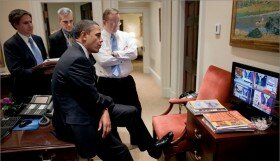
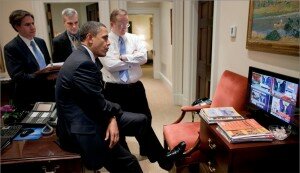
Photo by White House 2011
David Kenner wrote this week about President Obama’s news sources for Foreign Policy‘s Passportblog:
With one sentence, the New York Times raised dozens of Middle East pundits’ hopes that their words were reaching the most powerful man in the world. “At night in the family residence…Mr. Obama often surfs the blogs of experts on Arab affairs or regional news sites to get a local flavor for events,” read Mark Landler’s account of how the Obama administration will attempt to use the killing of Osama bin Laden to recast the U.S. relationship with the Arab world.
Well, Mr. President, we have some late-night reading suggestions for you.
Mr. Kenner generously suggested that the president read Small World News’ Alive in Libya as one of his late night sources, putting us in esteemed company alongside blogs like Joshua Landis’ Syria Comment and Reidar Visser’s Iraq & Gulf Analysis.
But counting decision makers in Washington among your readers is worth much more than flattery and bragging rights. Mr. Kenner has highlighted one of the most important functions of citizen media, that of providing the premiere source of context for the issues that affect us most.
Citizen media empowers and enables local citizens to tell their own story, report their own news, and communicate their own perspective to the outside world. Locals Alive In a country understand the context, the history, and the details of important news stories more thoroughly than reporters alive from the country. Local citizens are able to understand the news for what it is, and how it directly affects them. It is these voices that are under-represented, or not represented at all, in traditional, mainstream media.
Small World News in particular is concerned with allowing the viewer access to the daily lives, feelings, and opinions of citizens on the ground, the so-called “human element” of journalism. It is these seemingly ordinary experiences that truly allow the viewer to experience the extraordinary, the events that move and shape the world we all live in.
Combining both the understanding of and empathy with local citizens provides the viewer with the ultimate context for any news story. The importance of this context, for viewers, policy makers, and officials, cannot be overstated.
For more citizen media from Small World News, see some of the other projects in our Alive.In series:
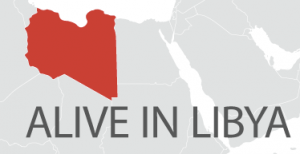

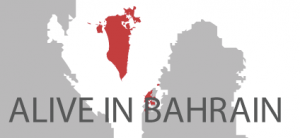
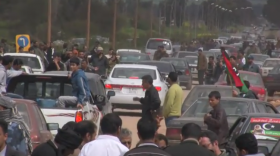
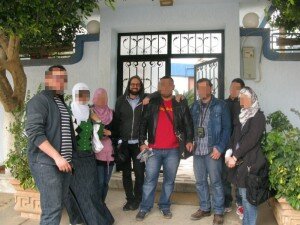
Alive in Libya team in Benghazi, March 2011
In March 2011, Brian Conley and Louis Abelman journeyed to Benghazi to lay the foundation for Alive in Libya.
Entering Libya through the Egyptian border in the east, and arriving just three weeks after the revolution began, they set about making contact with local citizens at a media center set up by the opposition movement. They met with a fixer, Marwan, who became the first Libyan team member on the project. Soon after they were joined by Ahmed, a former music blogger turned citizen journalist, and Seraj, a translator and English teacher.
What followed was a 3-day crash course in citizen media, covering everything from journalistic ethics to editing and uploading digital video. The training was abruptly cut short by an imminent threat of attack on Benghazi by Gaddafi’s forces. Brian and Louis fled the city, along with the majority of the international press corps. The project appeared to be at an end.
Less than two days later, though, the local team in Benghazi recovered from the assault and began putting their training into action. A series of videos, including dramatic footage of air battles over Benghazi, interviews with rebels at the front in Ajdabiya, as well as the spring flower festival were uploaded to Small World News‘ producers in the United States, and kept Alive in Libya online.
In its first two weeks, the team produced over 25 video segments, with subjects ranging from footage of the executions of Gaddafi’s mercenaries to short documentaries on Red Crescent refugee camps. The content was then vetted, translated, and published on the Alive in Libya website.
Since then Alive in Libya has published over 400 videos and articles, both original content from our team in Benghazi, and curated and enhanced content from other local citizen journalists and producers inside Libya.
Many of you likely first heard of Small World News through our work on Alive in Baghdad, a web series produced by local Iraqi journalists in the midst of the ongoing Iraq conflict. Given all of our recent activity outside Iraq, in Afghanistan, Iran, Honduras, etc. you may be wondering what’s up with the Iraq project.
As I wrote recently, one of our difficulties in the last months has been that our Bureau Chief Omar was in hiding in Syria, due to threats related to his work with Alive in Baghdad. He’s since been relocated to Sweden, leaving us without a full-time coordinator in the region. We are also in the process of rethinking how we move forward with Iraq coverage. As Iraq coverage continues to flag, despite the continuing presence of international forces and violence, it is a priority for us to return to regular coverage as well as analysis from Iraq.
Unfortunately with a flagging budget and recent staff losses, we have to figure out how to do Alive in Baghdad smarter, more effective and with more ease. All along our work on Alive in Baghdad has been very time-intensive. This is one of the difficulties inherent in producing documentary and news video. These difficulties are further exacerbated by the necessity of lengthy translations and coordinating staff across multiple countries and timezones.
We have been examining the integration of other social media and journalism tools within the Alive in Baghdad website. Specifically, with the coming Iraqi parliamentary election in January 2010 we hope to implement a process similar to our recent coverage of the Afghan election. We will crowdsource updates from Iraqis, and others present in Baghdad and around Iraq. We plan on integrating mobile submission as well as semi-realtime content.
We will temporarily shift gears, rather than focusing on a few highly produced videos each month, we hope to begin producing a variety of content, primarily short video clips, but possibly audio discussions, as well as photos, and written analysis, in particular examining events leading up to the elections.
We look forward to your comments and critiques, and welcome suggestions about how we can further involve the audience in our coverage of Iraq. We will also continue to need your support. Although we have a small amount of funds in our bank account, we will not be able to continue sustaining Alive in Baghdad, or build our other projects such as Alive in Afghanistan without your help. If you can support us with a one time donation, please do. If you are able to commit to a recurring amount, it would be a huge help to our work. We are currently investigating options for long-term and sustainable funding, but anything donated via PayPal from our audience will go directly to local producers and will not be subject to overhead costs to run support our American contributors.